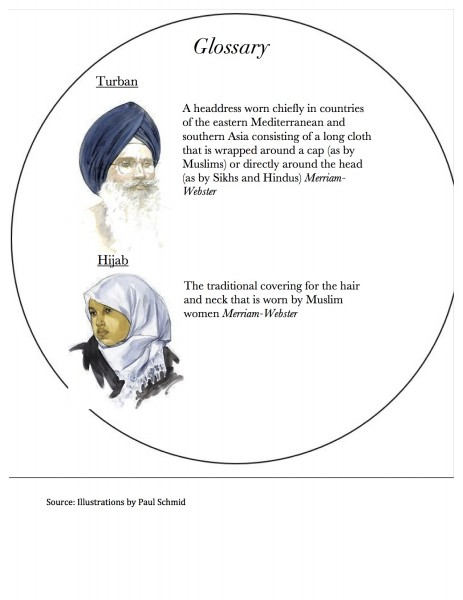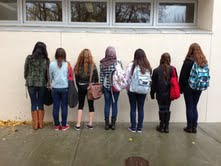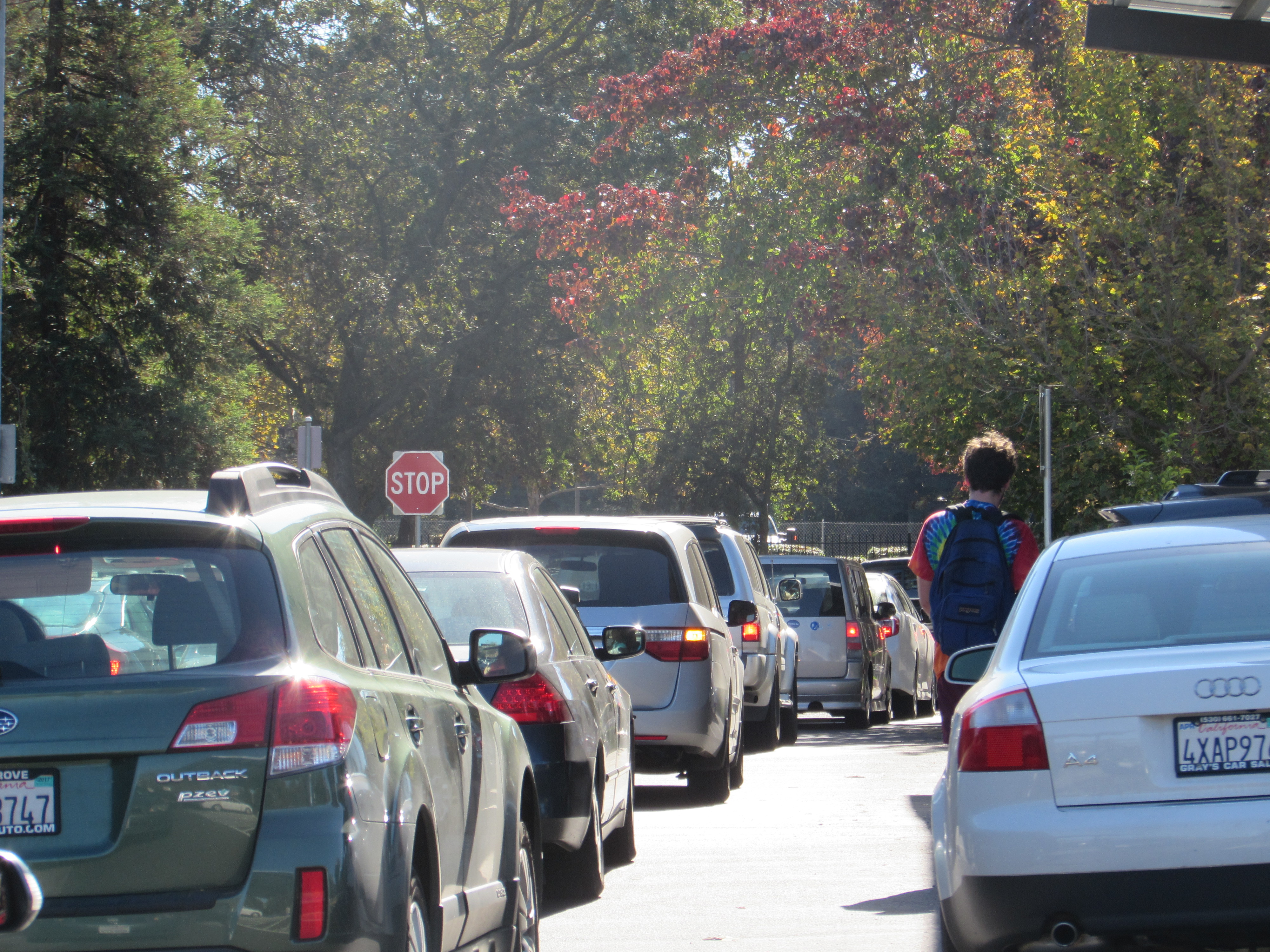DIVERSITY: Religious headwear still rouses reactions
 By Krystal Lau,
HUB Correspondent–
By Krystal Lau,
HUB Correspondent–
Baljot Singh, 15, was walking home alone one day. He met a drunken man who, upon seeing Singh’s turban, threw a glass beer bottle at his head.
“He cussed at me and shouted, ‘Go home terrorist!’” Singh said.
Eleven years after the devastating event of 9/11, many Muslims and others who wear religious head-coverings are still facing ill judgments. And, in sure cases, these hasty assumptions are not just coming from the streets, but from the campus of Davis High.
“Some people judge me on my physical appearance, but I don’t mind anymore,” Singh said. “I’ve faced a lot of hatred because of my turban. People have started hating on me just because of it.”
Singh wears a black turban at all times in public and his trademark beard has earned him the nickname, “Fear the Beard and Turbanator.”
First impressions matter a lot in meeting friends, teachers, or teammates. When wearing a hijab (a head scarf for Muslim women), those first impressions can change drastically.
Junior Hosna Mohabbat recalls a friend who took the hijab off only a month after she began to wear it, much to Mohabbat’s surprise.
“I asked her, ‘You were so excited to wear it- what happened?’” Mohabbat said. “She told me as soon as she started to wear the hijab people started treating her differently. Friends she’d known for years treated her like an extraterrestrial creature.”
Walking into a store would result in strange looks. Friends at Davis High would begin to look down on her and make comments about religion. Peer pressure was a key factor in her decision to stop wearing it.
“For me, it actually really makes me think because I don’t see how a head scarf could get such a different reaction,” Mohabbat said. “I think it’s so strange because she’s the exact same person with the same personality and same character. She just has a piece of fabric over her head.”
Hijab-wearing sophomore Maria Sandhu, however, keeps a positive outlook. “People are curious because it’s different, and they don’t see that everyday,” Sandhu said. “It’s a part of me; everyone has different traits about them. I like it because it makes me unique.”
Alex Toorman of OMF International, a religious organization that interacts with the Muslim community, believes this deep-seated prejudice traces back to the misconceptions made during 9/11.
“The reason why people feel the need to bully varies. There’s the negative connotation with Islam, which is associated with 9/11, which is then associated with terrorists,” Toorman said. “However, Muslims definitely reinforce this, as they have a tendency to keep to themselves. Uniformity to Muslims is conformity to their Islam rules.”
Mohabbat also blames the discrimination on the 9/11 attacks.
“I think 9/11 sparked it up because before people didn’t know much about the Middle East and 9/11 brought up some strange ideas. People started questioning Muslims as a whole and the media began to categorize everyone as terrorists,” Mohabbat said.
For those who wear them however, these head coverings mean respect, responsibility, and modesty. For Singh, it’s meant to protect his honor.
“Our people faced a lot of hatred after 9/11, and we were wrongly accused,” Singh said. “Our religion is a peaceful religion, it’s in our blood.”
Singh’s cousin was forced to cut his hair and take off his turban in order to get a job. This pressure from all aspects has been hard on Singh.
“I have been pressured so many times to take it off. I’ve even been in fights because someone didn’t like my heritage,” Singh said.
Still, Singh does not give up his turban, staying strong to his religious morals.
“I believe God plays a big role in my life,” Singh said. “Even through all my past experiences with bullying I’ve never wanted to take my turban off, and I don’t plan on it.”




